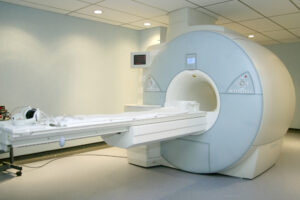Wouldn’t it be great if doctors and neurologists could diagnose Alzheimer’s Disease before there were any symptoms? They could target the disease before irreversible brain damage ensued. There are studies right now looking at strategies to secure that earlier diagnosis. One such involves using MRI to diagnose Alzheimer’s.
Causes Of Alzheimer’s Disease
Alzheimer’s Disease results from the progressive loss or degeneration of brain cells, and it is the most common form of dementia. Alzheimer’s disease is a condition where neurons within the brain stop functioning. They lose connections with other neurons and die. The condition impacts memory, thinking, language, judgment, and behavior. As of now, it is irreversible and progressive.

Although the cause is still not definitively known, scientists believe it is caused by beta-amyloid plaques, which are thick protein deposits in the brain. This increase of plaques in the brain causes the neurons to die.
There are risk factors which seem to indicate a person may be prone to Alzheimer’s disease. They include age, family history and someone with heart disease or cardiovascular disease. Despite that, even people in their 40s and 50s can have early onset Alzheimer’s.
How An MRI Can Help To Diagnose Alzheimer’s Disease
An MRI of the brain provides Southwest Diagnostic Imaging Center with a 3D image showing any abnormalities. This tool is valuable in several ways.
- It can eliminate other causes for memory loss like a stroke or tumor.
- It can find other reasons for cognitive decline which might be reversed with treatment.
- It can measure the size and amount of cells in the hippocampus, the area that helps to develop and store new memories, and is one of the first areas of the brain affected. The MRI will show if there is any shrinkage in size.
- It can also image the parietal lobe and note any shrinkage or atrophy. This is located in the upper back portion of the brain and another area affected by Alzheimer’s. It controls visual perception, ordering and calculation, and a sense of the body’s location.
Once the hippocampus and the parietal lobe are examined, doctors can eliminate other causes of the patient’s symptoms until Alzheimer’s disease is the only one left.
This gives doctors a non-invasive way to detect the condition earlier.
Scientists will continue to study the use of the MRI and other tests used to diagnose Alzheimer’s Disease at an earlier stage and perhaps find better treatments.
Schedule an MRI to Screen for Alzheimer’s Disease in Dallas, TX
Contact Southwest Diagnostic Imaging Center at (214) 345-6905 if you, or someone you love, is showing signs of cognitive decline.

